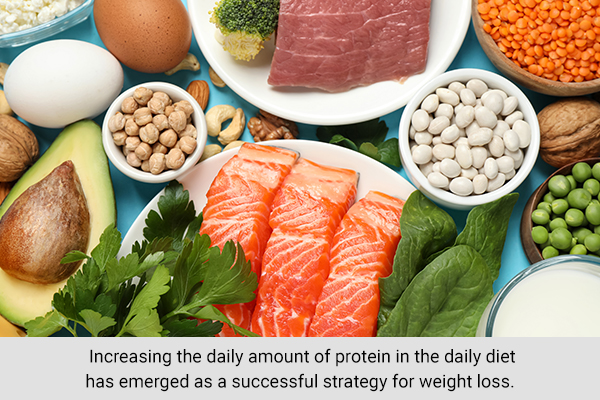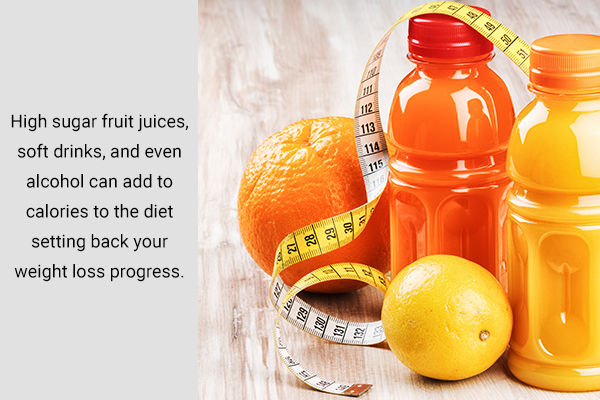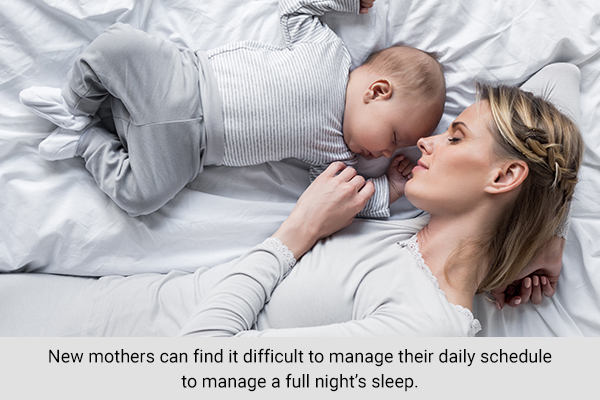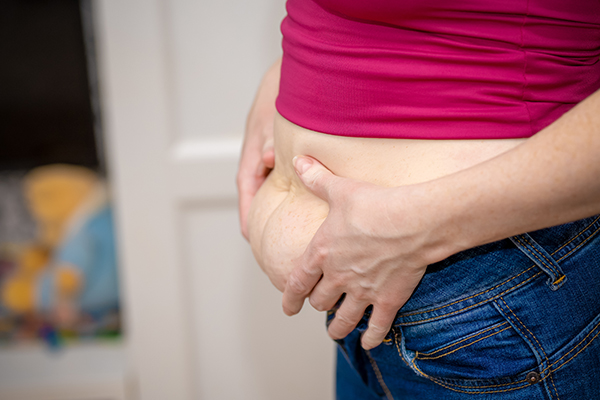In this article:
Some amount of weight gain during pregnancy is fairly common. Throughout the entire 42 weeks, pregnant women end up gaining 12–16 kg or 25–35 pounds. This weight consists of:

- Weight of the uterus
- Amount of amniotic fluid
- Weight of the baby
- Placenta
- Fat reserves
This weight gain is essential not only for healthy fetal development but also to protect maternal health and facilitate easy birth. (1)
Your ob-gyn will recommend the amount of weight you must gain based on your weight status at the time of conceiving.
While you can practice ways to manage weight gain during pregnancy, most women choose to focus on weight loss postpartum.
Ways to Lose Pregnancy Weight
Here are some measures you can do to shed off that postpartum weight.
1. Breastfeed

Many communities across the world encourage breastfeeding not only as a way to bond with your newborn but also as a weight management strategy.
Studies have found that women who exclusively breastfed for at least 3 months experienced 3.2 pounds greater weight loss at the 1-year mark and a 6% more likely chance of returning to prepregnancy weight. (2)
2. Engage in physical activity
Exercise is a great way to improve mood, increase cardio fitness levels, promote weight loss, and even manage anxiety and depression. (3)
Since new mothers are at a high risk of postpartum depression, experts also recommend exercising as a way to manage mental health or depressive disorders. (4)
Exercise recommendations may vary depending on a woman’s prepregnancy fitness routine as well as the method of delivery (cesarean or natural birth).
3. Manage calories
Calorie restriction is the most effective and well-known way to reduce weight in anyone. It is also a useful intervention in losing postpartum weight loss. (5)
Unlike pregnant women, mothers in the postpartum period do not need additional caloric intake unless they are breastfeeding, in which case the caloric requirement increases by 500 calories each day. (6)
A dietitian can help you plan a well-balanced calorie-deficient diet to manage weight loss while not compromising nutrient quality.
4. Increase protein in your diet

Over the past few years, including more than the recommended daily amount of protein in the daily diet has emerged as a successful strategy for weight loss. (7) It contributes by increasing the calories burned for digestion, increasing the use of fat for energy, and preserving muscle tone.
High amounts of protein in a postpartum diet can also aid in the recovery of the woman’s body. (8)
You can make sure your diet is high in protein by including 25–30 g of protein in each meal. (9) A good visual aid is to make sure a quarter of your plate is a protein source such as meat, fish, tofu, beans, and lentils.
5. Be mindful of snack foods
Snacking is where most weight loss diets fail. Since most snack foods are high in fat, sugar, or refined carbs, they can contribute to additional calories, setting you back in your weight loss journey. (10)
For this reason, you need to choose snack foods carefully. Choose high-fiber nutritious foods such as fruits, nuts, nut bars, and yogurt over chips, cakes, biscuits, or pastries.
6. Cut out added sugar and refined carbs
Refined carbs and sugar are directly linked to weight gain. Studies have found refined carbs to increase insulin levels in the body as well as increase body fat. (11)
Avoid foods made from refined sugar, packaged fruit juices, white flour, and chocolate spreads, and instead choose whole foods, fresh fruits, and vegetables.
7. Watch your drinks

Beverages can be a source of empty calories (calories without nutrients). High-sugar fruit juices, soft drinks, and even alcohol can add calories to the diet, setting back your weight loss progress.
In fact, the Centers for Disease Control and Prevention recommend that breastfeeding women avoid consuming alcohol altogether. (12)
8. Avoid eating out
Eating out at restaurants or getting takeaways is an easy way to gain weight. Observational studies have proven this claim, where participants of the study reported a lack of healthy food options while eating out and found an increase in their BMI. (13)
Even if you find healthy options, the portion sizes are likely to be more than what you are used to at home, causing an increase in weight.
9. Choose smarter cooking methods
Cooking methods that use less fat such as grilling, pan frying, and sautéing are better choices for cooking food on a weight loss diet.
Oftentimes, these cooking methods are easy and quick, increasing your likelihood to consume healthy home-cooked meals. An added advantage of such methods is their benefits for heart health. (14)
10. Manage sleep well

New mothers can find it difficult to manage their daily schedule to achieve a full night’s sleep.
Studies have linked better sleep to a greater amount of fat loss over a period of 1 year. (15) For this reason, find ways to get sufficient sleep. Ask for support from your partner and family and manage time effectively.
Is Losing Postpartum Weight Important?
The period after your baby is born brings a whole set of new changes entirely different from what you experienced during pregnancy. While you may have not watched what you ate as much throughout the pregnancy, eating what you want postpartum can make you drown in guilt.
It may also seem difficult to formulate or stick to a weight loss plan after birth. Postpartum weight retention can lead to obesity later in life. (5)
For this reason, it is essential to prioritize weight loss as soon as possible. The good news is the strategies you can implement are easy to do and can offer long-term results.
Expert Tips
It may seem tedious to indulge in lifestyle interventions when you have a new baby to care for. Exercising, for example, can be difficult when you think about taking an hour from your day.
However, this can be used as a time to bond with your baby. You can lay them next to where you work out, or you can ask at your gym or fitness center if they are okay with you bringing your baby. Most places are open to it. This ensures that you don’t compromise your goals.
Most-Asked Questions

How long will it take to lose the weight postpartum?
Usually, half of the weight is lost within the first 2 months as the body and organs recover. You may need up to a year of consistent work to lose all of the pregnancy weight.
How can I lose the belly after a pregnancy?
You may experience some loss as you gradually heal, but you may require specific exercises to tighten and tone the muscles around your abdomen. A fitness trainer may be able to help you identify targeted exercises suitable for you.
Remember that weight loss patterns and speed may vary from person to person and modes of birth.
Final Word
Taking care of your new baby and yourself should be your priority after giving birth. Losing postpartum weight is important to reduce the risk of obesity later in life.
Diet and exercise can also help restore energy and fitness levels, which not only can boost your self-esteem but also can benefit your mental health and reduce the risk of lifestyle diseases.
Simple intervention techniques are all that is needed for effective weight reduction. Remember to go at a slow consistent pace to reap long-term benefits.
- Was this article helpful?
- YES, THANKS!NOT REALLY


